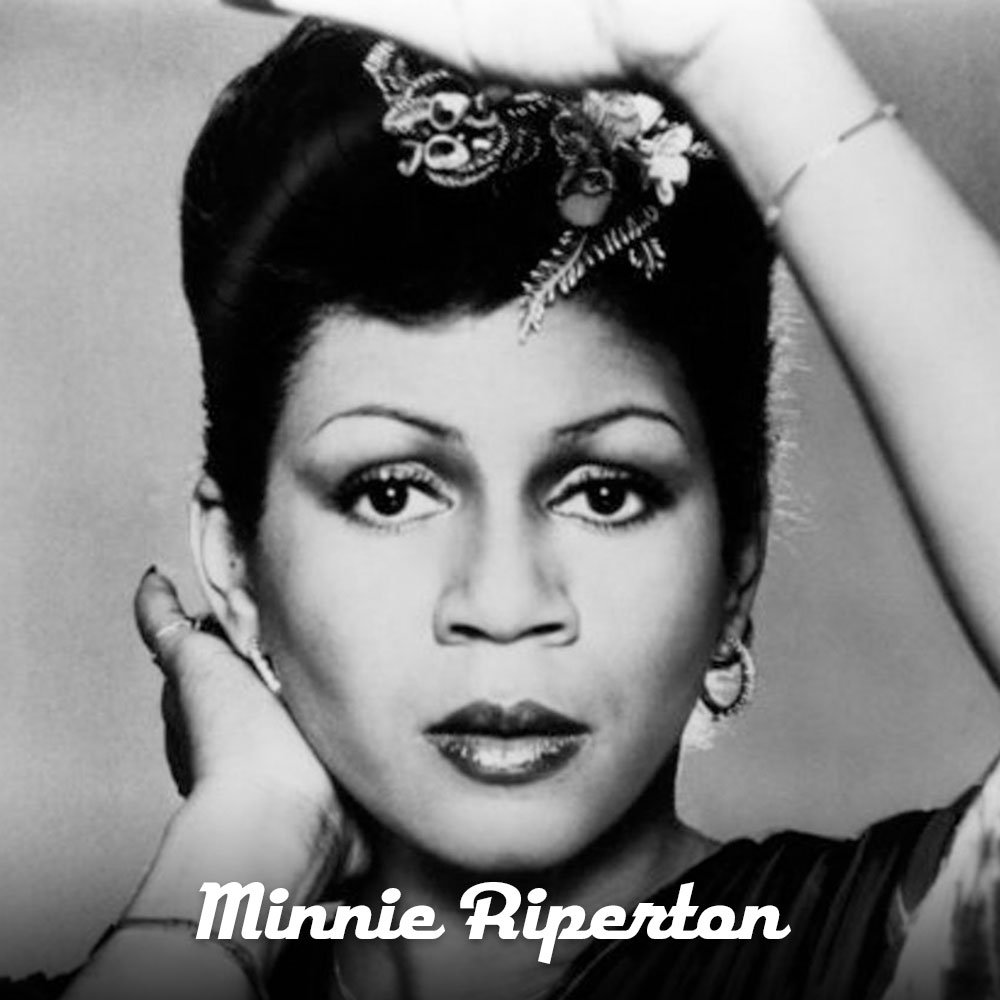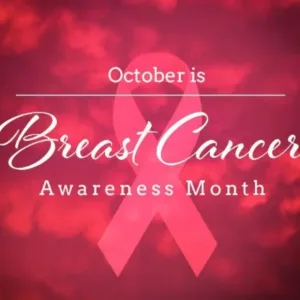Game 4 P.E.A.C.E Honors Breast Cancer Awareness Month: Highlighting Minnie Riperton’s Legacy and the Importance of Mammograms for Black Women By News Correspondent Gabrielle Nicole
Game 4 P.E.A.C.E Honors Breast Cancer Awareness Month: Highlighting Minnie Riperton’s Legacy and the Importance of Mammograms for Black Women By News Correspondent Gabrielle Nicole

Philadelphia, PA – A little after 7:00 PM on my 16th birthday, July 12, 1979, the DJ’s voice cut through the celebratory atmosphere like a sudden winter chill. “We have some sad news,” he announced, and my heart dropped. “Minnie Riperton has died from breast cancer.” In that moment, my world shifted. She was more than just one of my favorite singers; she was a the epitome of all my future onstage hopes and dreams.
As the weight of the news sank in, I closed my eyes, allowing the melodies of her songs the DJ played of hers to envelop me, bringing back memories of countless nights spent performing for my adoring invisible fans. With my hairbrush held tightly like a microphone, I transformed my bedroom into a grand stage, the walls adorned with posters of my idol. I stood there, singing her beautiful ballads, the soulful notes echoing in my mind as I lost myself in the music.
The room would come alive with the imaginary cheers of thousands, a sea of faces lit up with admiration, their eyes sparkling with joy. I could hear their applause, feel their energy, and see them swaying to the rhythm as I poured my heart into each note. In those moments, I was not just a girl; I was a star, channeling the spirit of Minnie herself. I sang with passion, my hairbrush microphone dancing through the air as I mimicked her incredible range, miserably failing to reach for the highs that she effortlessly conquered.
But now, standing in the reality of her loss, the weight of the hairbrush felt heavier, its vibrant bristles serving as a stark reminder of the talent that had been silenced too soon. The pain of her absence echoed in my heart, but I also felt an overwhelming sense of purpose. In honor of her legacy, I knew I had to amplify the message of awareness she inspired.
As I remember that day, I am resolved to use my voice for all women battling breast cancer. I envisioned the thousands of invisible fans again, but this time, I sang not just for joy but as a call to action. Minnie Riperton’s spirit would live on through my efforts, inspiring others to take proactive steps in safeguarding their health.
In honor of Breast Cancer Awareness Month, Game 4 P.E.A.C.E emphasizes the critical need for early detection and encourages Black women to prioritize their health. One of the most touching stories tied to this cause is that of legendary singer Minnie Riperton, whose battle with breast cancer continues to inspire action through the Minnie Riperton Cancer Research Foundation.
Minnie Riperton’s Story: A Voice for Awareness
Minnie Riperton, known for her iconic five-octave vocal range, captivated audiences with her unique talent. Her ability to blend various genres, including pop, jazz, and soul music, earned her several awards and widespread acclaim.
Minnie began her music career at a young age, working as a backup singer for Chess Records for about seven years before joining the group “Rotary Connection.” The group toured alongside big names such as Jefferson Airplane, Santana, Sly and the Family Stone, and Janis Joplin. In 1973, she signed with Epic Records and released her first album, “Perfect Angel,” co-produced by Stevie Wonder and her husband, Dick Rudolph.
In 1976, Riperton was diagnosed with breast cancer at the age of 28. Despite undergoing a mastectomy, she continued to perform and raise awareness about the disease, becoming one of the first Black celebrities to openly discuss her battle with breast cancer. She made a public declaration about her deteriorating health, serving as a source of inspiration for women facing similar challenges.
Sadly, Riperton passed away at the young age of 31 in 1979. In her honor, the Minnie Riperton Cancer Research Foundation was founded to promote cancer research, support patients, and educate the public, particularly Black women, about the importance of early detection and mammograms.
Minnie not only received accolades for her musical expertise but also for her bravery in speaking publicly about her illness. In 1977, President Carter presented her with an honorary award for public service, recognizing her efforts to advocate for breast cancer awareness.

The Impact of Breast Cancer on Black Women
Breast cancer presents unique challenges for Black women, who face several disparities in diagnosis, treatment, and outcomes:
- Higher Mortality Rates: While the incidence of breast cancer is lower among Black women compared to white women, they are 40% more likely to die from the disease. This stark contrast underscores the critical need for targeted interventions and support.
- Earlier Age of Diagnosis: Black women are often diagnosed at younger ages and at more advanced stages of breast cancer. This trend highlights the importance of regular screenings and awareness of personal risk factors.
- Aggressive Cancer Types: Black women are more likely to develop aggressive forms of breast cancer, such as triple-negative breast cancer, which is more challenging to treat and has a poorer prognosis.
- Barriers to Healthcare Access: Factors such as socioeconomic conditions, limited access to healthcare, and systemic inequalities contribute to lower screening rates among Black women. Despite their high risk, many Black women are less likely to receive regular mammograms, leading to delayed diagnoses and poorer outcomes.
Breast Cancer Statistics for Black Women
– Higher Mortality Rate: Black women face a 40% higher death rate from breast cancer compared to white women.
– Younger Age at Diagnosis: The average age of diagnosis for Black women is often younger, with many presenting with more advanced disease.
– Lower Screening Rates: Black women are less likely to receive regular mammograms, contributing to delays in diagnosis and treatment.
– Aggressive Forms: Black women are more likely to be diagnosed with triple-negative breast cancer, known for its aggressive nature and limited treatment options.
Importance of Early Detection: FAQs for Breast Cancer
Q: What is a mammogram, and why is it important?
A: A mammogram is an X-ray of the breast used to detect cancer early, often before symptoms arise. Early detection through mammograms can significantly improve survival rates by identifying cancer when it is most treatable.
Q: When should women start getting mammograms?
A: The American Cancer Society recommends that women at average risk begin annual mammograms at age 40-45.
End of the Game: A Call to Action for Black Women
As we close this chapter honoring Minnie Riperton’s legacy during Breast Cancer Awareness Month, let us remember that her story transcends her extraordinary musical talent. It embodies resilience, courage, and an unwavering commitment to advocacy. The echo of her voice still resonates in our hearts, urging us to take proactive steps in the fight against breast cancer.
In our communities, it is vital to foster an environment where conversations about health are normalized and encouraged. The statistics are clear, and the disparities in outcomes for Black women are stark. We must empower each other to prioritize our health through regular screenings, educating ourselves on the importance of early detection, and supporting one another in the journey of wellness.
Just as Minnie used her platform to raise awareness, let us harness our voices to advocate for change, break down barriers, and ensure that every woman, regardless of her circumstances, has access to the healthcare she deserves. Together, we can uplift the legacy of Minnie Riperton by creating a new narrative—one that champions hope, awareness, and the healing power of community.
So, let us honor Minnie not just with our memories but through our actions. Schedule those mammograms, share your stories, and uplift those around you. Join us in the fight against breast cancer, transforming pain into purpose and awareness into action.
Together, we can ensure that Minnie’s legacy lives on—not only in the melodies of her timeless songs but in a future where every woman can celebrate life, health, and the beauty of community. Let’s make this commitment as we stand united, amplifying the voices of those who came before us, and paving the way for those who will follow.


